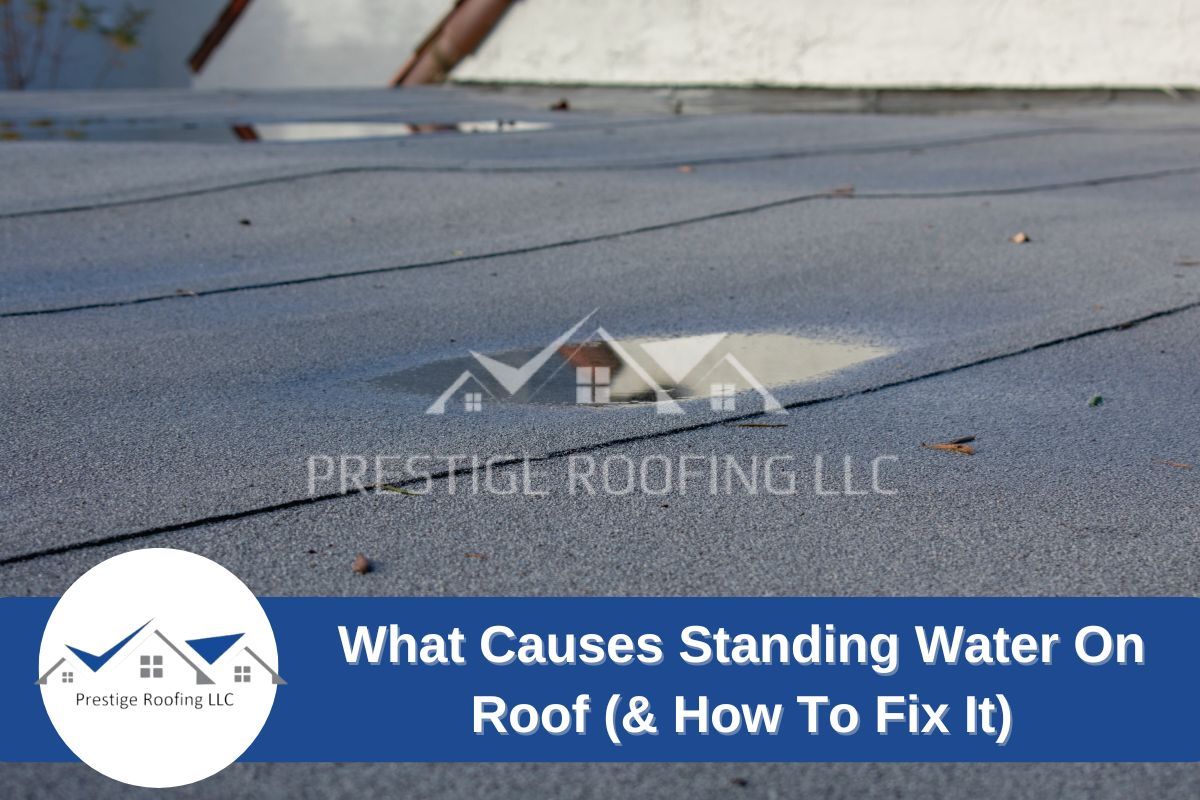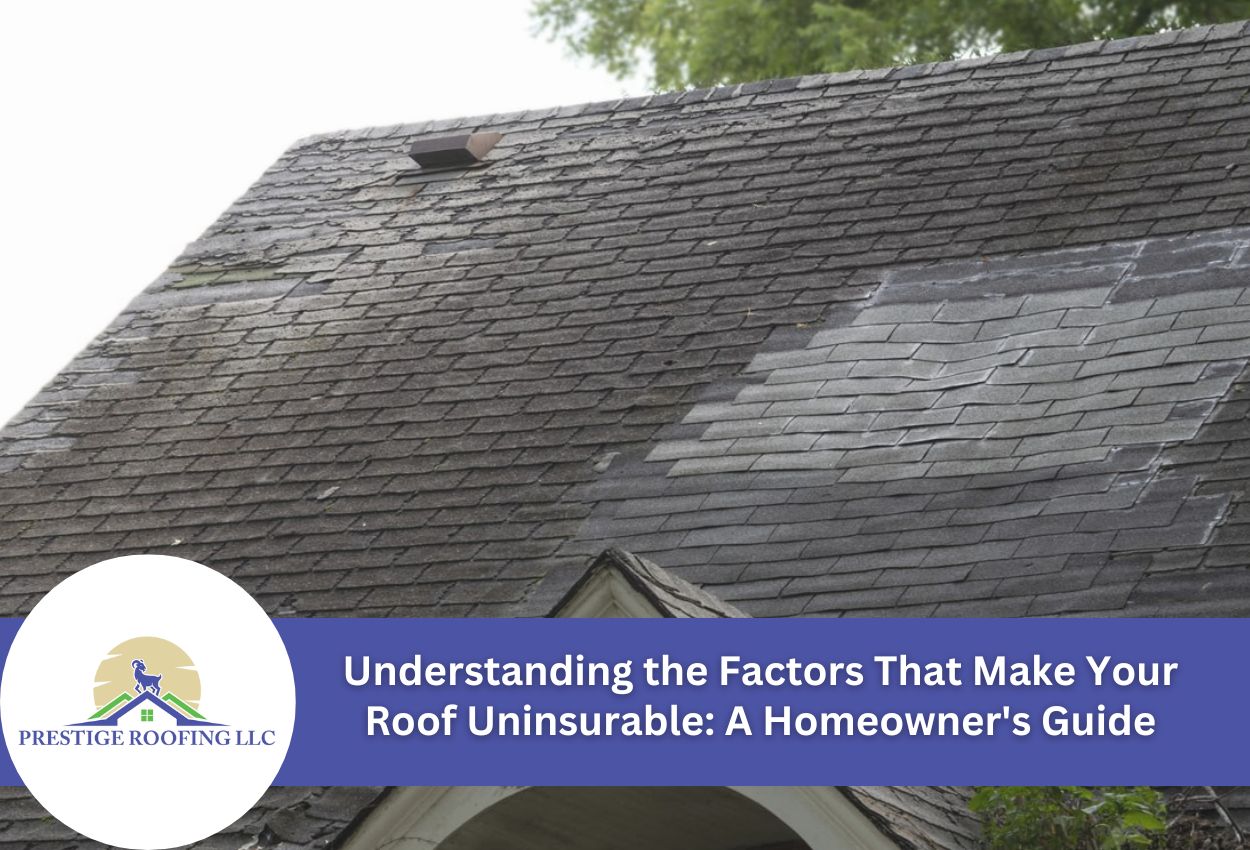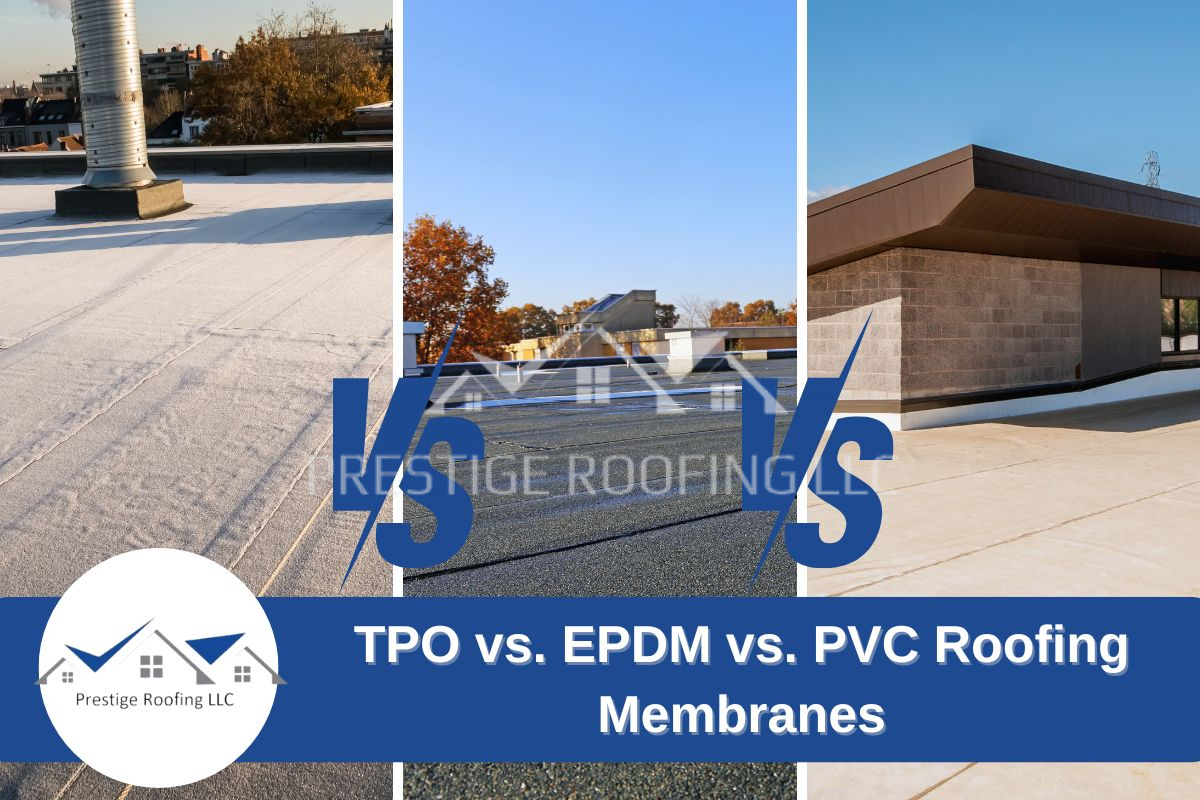A TPO roofing system is one of the most popular options that you will come across when you’re looking at different types of materials to install for your commercial roof. It is quite durable and has numerous benefits, but it is often compared to another popular roofing option: PVC. While both these materials are a type of thermoplastic, single-ply roofing membrane, they are quite different in many ways.
Both have unique advantages and disadvantages, and the choice ultimately depends on your specific needs, budget, and preferences. In this blog post, we’ll dive deep into the world of TPO and PVC roofs, exploring their characteristics, benefits, and drawbacks to help you make an informed decision.
What Is A TPO Roofing Membrane?
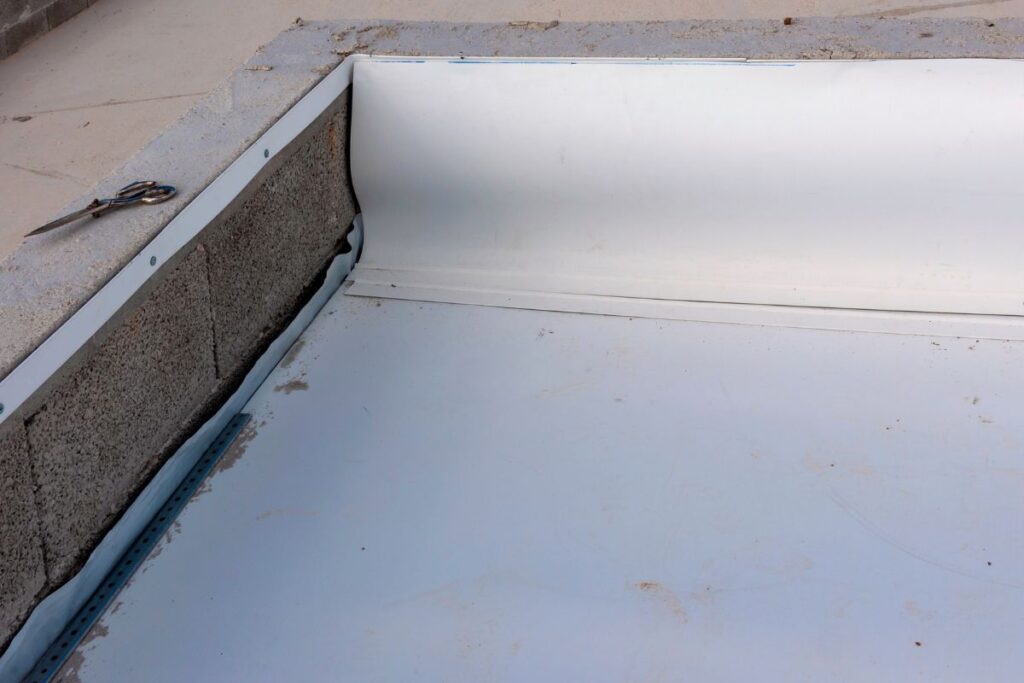
A TPO roof is a single-ply membrane made from a blend of polypropylene and ethylene-propylene rubbers. It’s a relatively new roofing material that has gained popularity in recent years due to its durability, energy efficiency, and cost-effectiveness. TPO membranes are available in various thicknesses, with the most common being 45 mil, 60 mil, and 80 mil.
Want to know about TPO roofs in detail? Read: What Is TPO Roofing?
What Is A PVC Roofing Membrane?
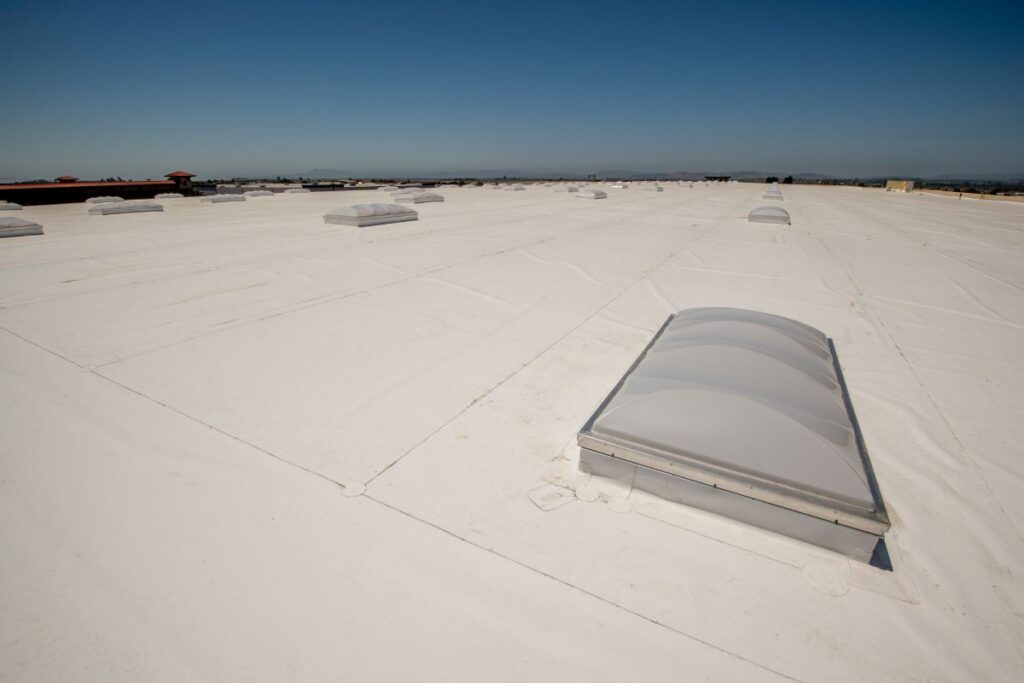
In comparison, we have PVC roofing systems. Also known as vinyl roofing systems, this is another type of single-ply membrane widely used on flat or low-slope roofing applications. It’s made from a combination of polyvinyl chloride and other reinforcing materials, such as fiberglass or polyester. PVC membranes are available in various thicknesses, with the most common being 60, 80, and 90 mil.
TPO vs. PVC Roofing: How To Choose The Right Roofing System?
When deciding between TPO and PVC roofing, it’s essential to consider your specific needs, budget, and the weather conditions in your area. Here are some key factors to keep in mind:
- Climate: If you live in an area with extremely hot temperatures or frequent exposure to intense UV rays, TPO roofs may be a better choice. Its superior heat and UV resistance gives it the edge against PVC in harsh sunny environments.
Also, due to the presence of plasticizers, TPO is durable in colder conditions too. PVC, on the other hand, is more prone to cracking or splitting, especially in very cold temperatures below -10°F. However, PVC is known to handle weathering better and fares better against harsh weather conditions such as storms.
- Budget: When it comes to upfront costs, TPO roofing systems typically have the edge. The average cost for TPO materials and installation ranges from $4 to $10 per square foot, while PVC roofing systems can cost anywhere from $5 to $15 per square foot. Keep in mind that these numbers could also end up higher or lower than expected based on factors such as material quality and local labor rates.
- Longevity: If you’re looking for a roofing system with a longer lifespan, PVC is the better choice. With proper maintenance and care, PVC roofs can last up to 30 years or more, while TPO roofs typically have a lifespan of 20 to 25 years. This extended lifespan can make PVC a more cost-effective option in the long run.
- Chemical Exposure: If your building is exposed to chemicals, oils, solvents, or grease, PVC roofing systems are a better option for you due to their superior chemical resistance. PVC is almost fully non-reactive to most acids, bases, and oils, making it ideal for industrial or commercial buildings where chemical exposure is a concern. These roofing systems are also more fire-resistant than TPO.
- Environmental Considerations: When it comes to eco-friendliness, TPO roofing systems are generally better than PVC membranes. TPO roofing membranes often contain a higher percentage of recycled materials (up to 25% in some cases) and have a lower carbon footprint during their manufacturing process. However, both TPO and PVC can contribute to environmental concerns if they’re not properly disposed of or recycled at the end of their lifespan.
- Flexibility: TPO membranes are generally more flexible than PVC, which can be an advantage when it comes to accommodating building movement. TPO’s increased flexibility allows it to better withstand expansion and contraction without cracking or splitting. PVC, while still somewhat flexible, tends to be more rigid, potentially making it more susceptible to damage when the building shifts over time.
- Installation Complexity: The installation process for a TPO roofing membrane is often simpler and faster compared to PVC. TPO membranes can be installed using adhesives or heat-welded seams, both of which are relatively straightforward techniques. PVC roofing systems, on the other hand, typically require a more involved heat-welding process for connecting the seams, requiring more time.
Choosing The Right Roofing System
When deciding between TPO and PVC roofing systems, it’s essential to consider your specific needs, budget, and the local weather in your area. Here are some factors to keep in mind:
Climate: If you live in an area with extreme temperatures or frequent exposure to UV rays, TPO roofing systems may be a better choice due to their superior heat and UV resistance.
Budget: If cost is a primary concern, TPO may be the more affordable option, especially for larger projects.
Longevity: If you’re looking for a roofing system with a longer lifespan, PVC may be the better choice, as it can potentially last up to 30 years or more with proper maintenance.
Chemical Exposure: If your building is exposed to chemicals, oils, or solvents, PVC may be the safer option due to its superior chemical resistance.
Environmental Considerations: If you prioritize eco-friendliness, TPO roofing may be the more sustainable choice due to its higher recycled content and lower carbon footprint during manufacturing.
Are There Other Alternative Roofing Materials For My Commercial Roof?
Now that you know more about PVC and TPO roofing systems, you can see that both of these flat roofing membranes offer you different advantages, and choosing the right option will require you to take into account certain factors. However, if after reading you feel that none of them is quite right for you, or you need more options, don’t worry.
Here are some other alternatives you can utilize:
EPDM Roofs:

If neither TPO nor PVC seems like the perfect fit, you might want to consider EPDM. This synthetic rubber, single-ply roofing membrane is known for its excellent weathering abilities and resistance to UV rays and ozone. EPDM roofs are also highly durable, with a lifespan of up to 35 years or more.
We have also done an in-depth analysis of TPO vs EPDM, which you can read here.
Modified Bitumen Roofs:
Another alternative to these roofing systems is modified bitumen. This type of roofing system consists of asphalt that has been modified with polymers for added strength and flexibility. Modified bitumen roofs are known for their affordability, versatility, and ability to withstand extreme temperatures.
Green Roofs:
For those interested in eco-friendly and energy-efficient roofing solutions, green roofs are an increasingly popular option. These roofs feature a layer of vegetation, such as plants or grass, grown on top of a waterproof membrane. Green roofs can help reduce energy costs and improve air quality, but they require a lot of maintenance and have high upfront costs.
Also Read: Common TPO Roofing Problems You Should Know About
Get The Best Commercial Roof Installation From Prestige Roofing
Whether you want to install a TPO, PVC, or any other type of roofing system, it’s important that you hire a professional roofing company such as Prestige Roofing LLC. We have a great reputation in the roofing industry and serve the entire Northeastern Wisconsin area with pride. We specialize in commercial roof installation services and can help you with whatever you need. Contact us today at (920) 791-0414 to learn more about what we can do for you.



